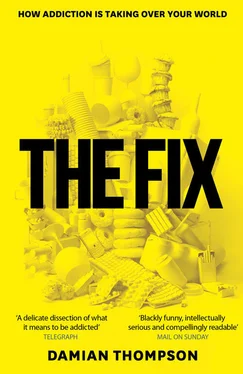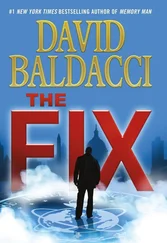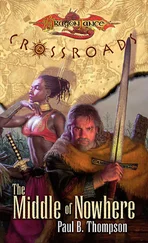Alan Burrows, a pensioner from Queensland, was one of 100 Australians who sued the drug company Pfizer after taking its dopamine agonist medication Cabaser. He claims that it caused him to start binge gambling on ‘pokies’ (Australian slang for slot machines). Eventually, he had to sell his house to pay off his $300,000 gambling debts. ‘Once I started I had to keep going, by withdrawing money every hour, until I couldn’t get any more money,’ he said. ‘It was a compulsion to do it. You became really devious, disgusting.’ 5 Конец ознакомительного фрагмента. Текст предоставлен ООО «ЛитРес». Прочитайте эту книгу целиком, купив полную легальную версию на ЛитРес. Безопасно оплатить книгу можно банковской картой Visa, MasterCard, Maestro, со счета мобильного телефона, с платежного терминала, в салоне МТС или Связной, через PayPal, WebMoney, Яндекс.Деньги, QIWI Кошелек, бонусными картами или другим удобным Вам способом.
It’s probably no consolation to Mr Burrows, but what happened to him and to the other Parkinson’s sufferers who developed compulsive habits helps us to draw the boundaries of addiction. Their ordeal suggests that dopamine is a common factor in habits that society has been slow to label ‘addictions’ because they don’t involve drugs.
After the stories of bad reactions to Parkinson’s drugs surfaced, Dr Valerie Voon of the US National Institutes of Health led a study of patients given dopamine agonists. She found that 13 per cent exhibited ‘a constellation of pathological behaviours, including gambling, shopping, binge eating and hypersexuality’. 6 Конец ознакомительного фрагмента. Текст предоставлен ООО «ЛитРес». Прочитайте эту книгу целиком, купив полную легальную версию на ЛитРес. Безопасно оплатить книгу можно банковской картой Visa, MasterCard, Maestro, со счета мобильного телефона, с платежного терминала, в салоне МТС или Связной, через PayPal, WebMoney, Яндекс.Деньги, QIWI Кошелек, бонусными картами или другим удобным Вам способом.
They did so because they were being over-supplied with dopamine.
The inference we can draw from this is valuable. It seems that people who don’t have Parkinson’s disease but engage in the same pathological habits are also having problems with their dopamine levels. Gambling, obsessive shopping, binge eating, hypersexuality – note how those Parkinson’s patients found themselves caught up in the sort of activities where wanting overwhelms liking. Also, they were being driven by repetitive urges. This is typical of dopamine at work, laying down new patterns in the brain as it takes effect. As the psychiatrist Norman Doidge explains: ‘The same surge of dopamine that thrills us also consolidates the neuronal connections responsible for the behaviours that led us to accomplish our goal.’ 7 Конец ознакомительного фрагмента. Текст предоставлен ООО «ЛитРес». Прочитайте эту книгу целиком, купив полную легальную версию на ЛитРес. Безопасно оплатить книгу можно банковской картой Visa, MasterCard, Maestro, со счета мобильного телефона, с платежного терминала, в салоне МТС или Связной, через PayPal, WebMoney, Яндекс.Деньги, QIWI Кошелек, бонусными картами или другим удобным Вам способом.
In other words, the more we experience dopamine-induced pleasure, the more we want to repeat the experience. But, thanks to levels of tolerance that have been raised by rewiring, the harder we have to work to repeat it to our satisfaction. That is why addicts always seem to be looking for a bigger and bigger hit.
All substance abusers experience surges of dopamine, often accompanied by craving – that is, very strong feelings of wanting. Alcohol, amphetamine, cocaine, heroin, marijuana and nicotine all increase the supply of dopamine to the nucleus accumbens, a pleasure centre buried deep in the brain that has been called the final destination of the reward pathway. 8 Конец ознакомительного фрагмента. Текст предоставлен ООО «ЛитРес». Прочитайте эту книгу целиком, купив полную легальную версию на ЛитРес. Безопасно оплатить книгу можно банковской картой Visa, MasterCard, Maestro, со счета мобильного телефона, с платежного терминала, в салоне МТС или Связной, через PayPal, WebMoney, Яндекс.Деньги, QIWI Кошелек, бонусными картами или другим удобным Вам способом.
This does not mean that addicts are people born with naturally high or low levels of dopamine, nor that they have inherited cravings that force them to keep stimulating the rush of dopamine into their nucleus accumbens. If any of these things could be proved, then the study of addiction science wouldn’t involve so much infuriating guesswork.
Different recreational drugs do different things to the brain. They produce different rewards – and different punishments. You don’t have to take them to know that; you just have to observe the behaviour of their users. It’s a bit like visiting the zoo.
Coke-heads and speed freaks gabble excitedly as they are swept along on a tide of dopamine. When that tide pulls out, they experience a particular sort of come-down. ‘Coke is the drug we save for the time after we get back from clubbing,’ says Olly, 27, a graphic designer. ‘It runs out pretty quickly. Presuming we don’t order more, by 4 a.m. everyone is getting jittery and anxious. You see people’s eyes flicking around the room wondering if anyone’s got any left. A group of four chatty and gobby friends suddenly becomes four individuals chewing the insides of their cheeks. The next morning we go for brunch to cure our hangovers but everyone’s coming down off the coke, snapping at each other. Some people feel blue for days.’
Heroin users don’t inflict logorrhea on their friends: their drug is forcing the brain to over-produce endorphins, those natural euphoria-inducing and painkilling neurotransmitters. Heroin suppresses neurotransmission in the central nervous system, which can produce an exquisitely calm feeling, particularly if your nerves were shot to pieces in the first place. This can take people to the gates of paradise, but also to hell: the come-down is long and usually profoundly depressing, because the nucleus accumbens is extremely sensitive to opioid withdrawal. 9 Конец ознакомительного фрагмента. Текст предоставлен ООО «ЛитРес». Прочитайте эту книгу целиком, купив полную легальную версию на ЛитРес. Безопасно оплатить книгу можно банковской картой Visa, MasterCard, Maestro, со счета мобильного телефона, с платежного терминала, в салоне МТС или Связной, через PayPal, WebMoney, Яндекс.Деньги, QIWI Кошелек, бонусными картами или другим удобным Вам способом.
Читать дальше












